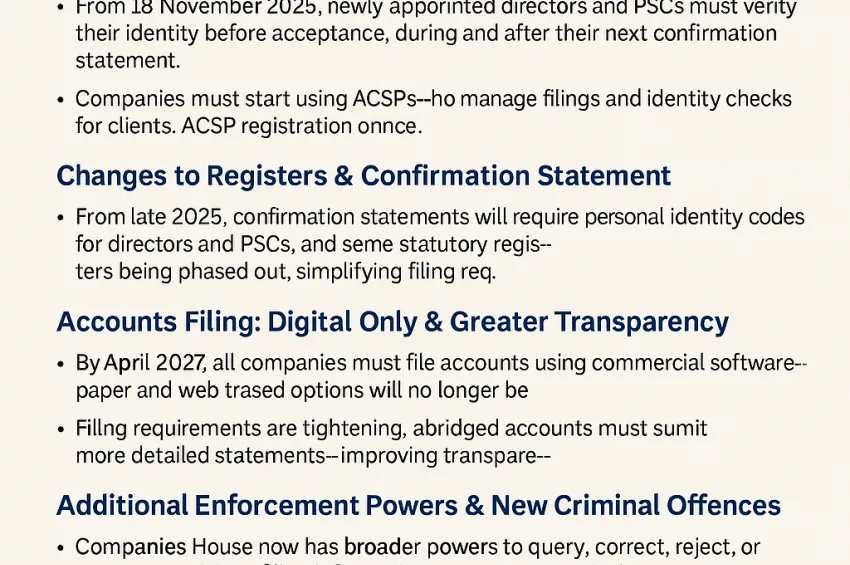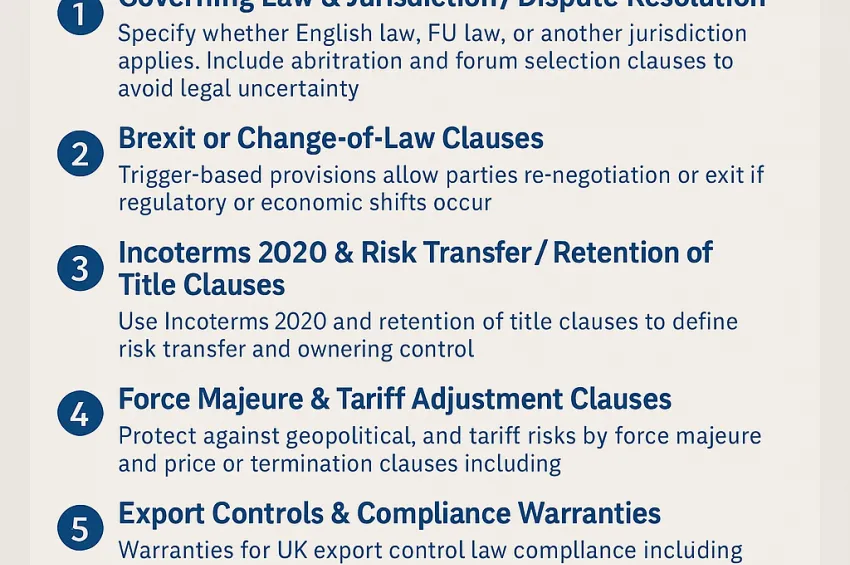
The Economic Crime and Corporate Transparency Act 2023, now in implementation, is reshaping UK company law with stronger reporting mandates. These reforms aim to improve the integrity of the Companies House register—a priority that every SME should prepare for.
Identity Verification: No Longer Optional
-
From 8 April 2025, individual directors, persons with significant control (PSCs), and others can verify their identity voluntarily via GOV.UK One Login or through an Authorised Corporate Service Provider (ACSP).
-
Mandatory identity verification starts on 18 November 2025. From then, any newly appointed director or PSC must verify their identity before the appointment is accepted—and existing appointees have a 12-month transition period during and after their next confirmation statement.
-
As part of this, companies must begin using ACSPs—regulated agents who manage filings and identity checks on behalf of clients. The ACSP registration commenced on 18 March 2025.
Changes to Registers & Confirmation Statement
-
From late 2025, confirmation statements will change—personal identity codes will be required for directors and PSCs, and some statutory registers are being phased out, simplifying filing requirements.
Accounts Filing: Digital Only & Greater Transparency
-
By April 2027, all companies must file accounts using commercial software; paper and web-based options will no longer be available.
-
Filing requirements are also tightening: abridged accounts will be withdrawn, and small/micro-entities must submit more detailed statements—bolstering transparency.
Additional Enforcement Powers & New Criminal Offences
-
Companies House now has broader powers to query, correct, reject, or remove suspicious filing information—even retrospectively.
-
From 1 September 2025, a “failure to prevent fraud” offence will make companies criminally liable for employee fraud unless reasonable safeguards are in place.
Quick Reference: SME Action Checklist
| When | What to Do |
|---|---|
| Now | Identify who will need to verify identity—build this into onboarding and leaver processes. Confirm whether filings will be done directly or via an ACSP and verify they’re registered. |
| Late 2025 | Ensure confirmation statements collect personal codes and update your internal register processes. |
| 2026–2027 | Migrate to compliant software for filing accounts. Expect to disclose more financial detail. Prepare internal controls to prevent fraud. |
| Ongoing | Be aware that Companies House may now challenge filings more aggressively. Keep documentation robust and accurate. |
Final Thoughts
These reforms are designed to reinforce trust in the corporate registry—crucial in an era focused on economic crime prevention. However, they also raise practical challenges for SMEs in terms of administration and compliance.
Want help mapping these changes onto your year-end calendar or selecting the right accounting software? I’m ready to support you with tailored compliance planning.















